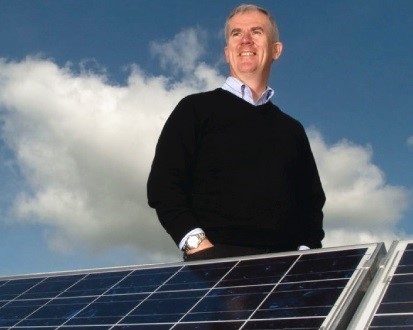The unprecedented impact of the Covid-19 crisis means consumer attitudes are changing - only 9% of Britons want life to return to 'normal'. So, what's next?
Our priorities as consumers are changing, and some have been accelerated by Covid-19. The national lockdown means that we’re re-examining our consumption and re-evaluating what’s important, including how we live and the impact we make on the planet. There is evidence that the UK’s population is thinking more about the undeniable link between public health and long-term sustainability.
What’s more, at a time when community and working together have never been so important, customers are increasingly expecting businesses to demonstrate their commitment to ethical and sustainable business practices, and this trend is unlikely to fade once the coronavirus recedes.
The new normal
“According to a recent YouGov poll, only 9% of Britons want life to go back to ‘normal’ once lockdown is over. More than 54% of the respondents are trying to make some changes in their own lives and hope that the country will similarly learn from the crisis and 51% of the respondents noticed cleaner air outdoors”, explains Ged Ennis, Managing Director at Low Carbon Energy.
Satellite images have shown dramatic reductions in concentrations of pollutant nitrogen dioxide across the world. This plunge in emissions has given us a glimpse of what the world could be, and now that we’ve seen that, it could be all the driving force that many customers need in order to make a change. It is also important to highlight that even before the current crisis, there was growing evidence of customers factoring in environmental concerns into their purchasing decisions.
What can businesses do?
With increasingly stark changes in customer expectations, the most successful businesses will undoubtedly be the ones that find ways to adapt to these changes - Corporate Social Responsibility has never been more important.
Be approachable - Throughout the crisis, consumers have been watching businesses closely, looking at the ways they treat their employees and their customers. Therefore, it’s a good idea to double-check that you’re being proactive in listening to employees and customers’ concerns. Similarly, it’s a good idea to take another look at your processes and your suppliers, especially if they’re overseas, and examining what ethical practices they have in place to ensure proper treatment of their staff and the environment.
Be sustainable - After the seismic global changes brought about by Covid-19, the threat posed by climate change might not seem like such an abstract fear for so many people in future, so it’s likely to become an increasingly widespread concern for your existing and potential customers. It goes to show the growing importance that sustainability has not just for your business and the planet, but also in continuing to appeal to customers.
Be energy-secure - One of the biggest priorities for countless UK businesses after this will be to look at how they can set up practices and failsafes to help protect themselves against this in future. If you’re considering this yourself, your energy is a great place to start. Most businesses are dependent on the National Grid for their energy, but there are several benefits to focusing your efforts on energy independence. Generating your own energy through commercial solar panels and similar technologies can also give you additional financial stability as you’re able to sell excess energy back to the Grid through the Smart Export Guarantee. Renewables are protected above all by their ‘zero marginal cost’. Solar panels don’t require you to buy fuel to make them work. Their power source is abundant, universal, so you can count on solar panels to keep your business running even in the hardest of times.
Find out more by reading the full article here.
The experts at LowCarbon Energy have over 30 years of combined experience behind them in helping companies save on business costs, and profit from having cleaner energy. To find out how they can help you, feel free to give them a call on 01282 421 489.























